Turkey, with its rich history and diverse climates, has emerged as a notable wine-producing country. Combining ancient winemaking traditions with modern techniques, Turkey offers a variety of wine regions that produce both indigenous and international grape varieties. Whether you’re a seasoned oenophile or a casual wine lover, exploring Turkey’s vineyards and wineries provides a unique and enriching experience. This guide delves into the key wine regions, prominent vineyards, wine tours, and practical tips to help you discover the best of Turkey’s wine scene.
1. Overview of Turkey’s Wine Industry
A Brief History
- Ancient Roots: Winemaking in Turkey dates back over 8,000 years, with archaeological evidence from sites like Göbekli Tepe and the Hittite civilization.
- Ottoman Influence: The Ottomans cultivated grapevines and developed sophisticated winemaking techniques.
- Modern Revival: Post-1980s, the Turkish wine industry has undergone significant modernization, blending traditional practices with contemporary viticulture and enology.
Key Grape Varieties
- Indigenous Varieties:
- Kalecik Karası: A red grape from Central Anatolia, known for its fruity and balanced wines.
- Öküzgözü: A red grape from Eastern Anatolia, produces medium-bodied wines with soft tannins.
- Boğazkere: A robust red grape also from Eastern Anatolia, known for its strong tannic structure.
- Çalkarası: A versatile grape used for both red and rosé wines.
- International Varieties:
- Cabernet Sauvignon, Merlot, Syrah, Chardonnay, and Sauvignon Blanc are widely cultivated across various regions.
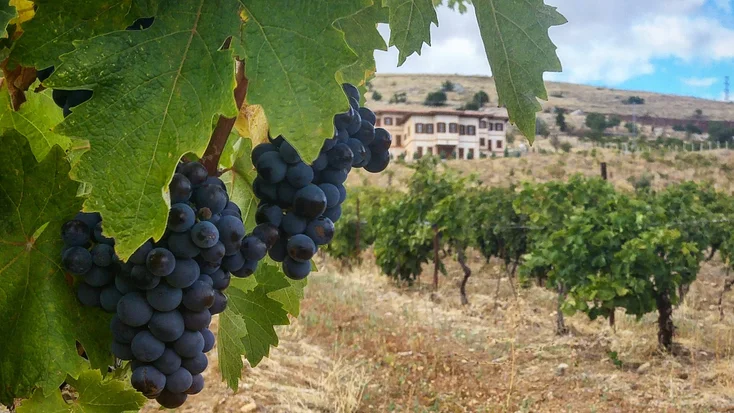
2. Major Wine Regions in Turkey
a. Thrace (Tekirdağ)
- Location: Northwestern Turkey, bordering Bulgaria and Greece.
- Climate: Continental climate with hot summers and cold winters, ideal for red grape varieties.
- Key Wineries:
- Kavaklıdere: One of Turkey’s oldest and most renowned wineries, offering a wide range of wines.
- Doluca: Famous for both red and white wines, Doluca is a staple in Turkish wine production.
- Melas: Known for its premium wines and sustainable winemaking practices.
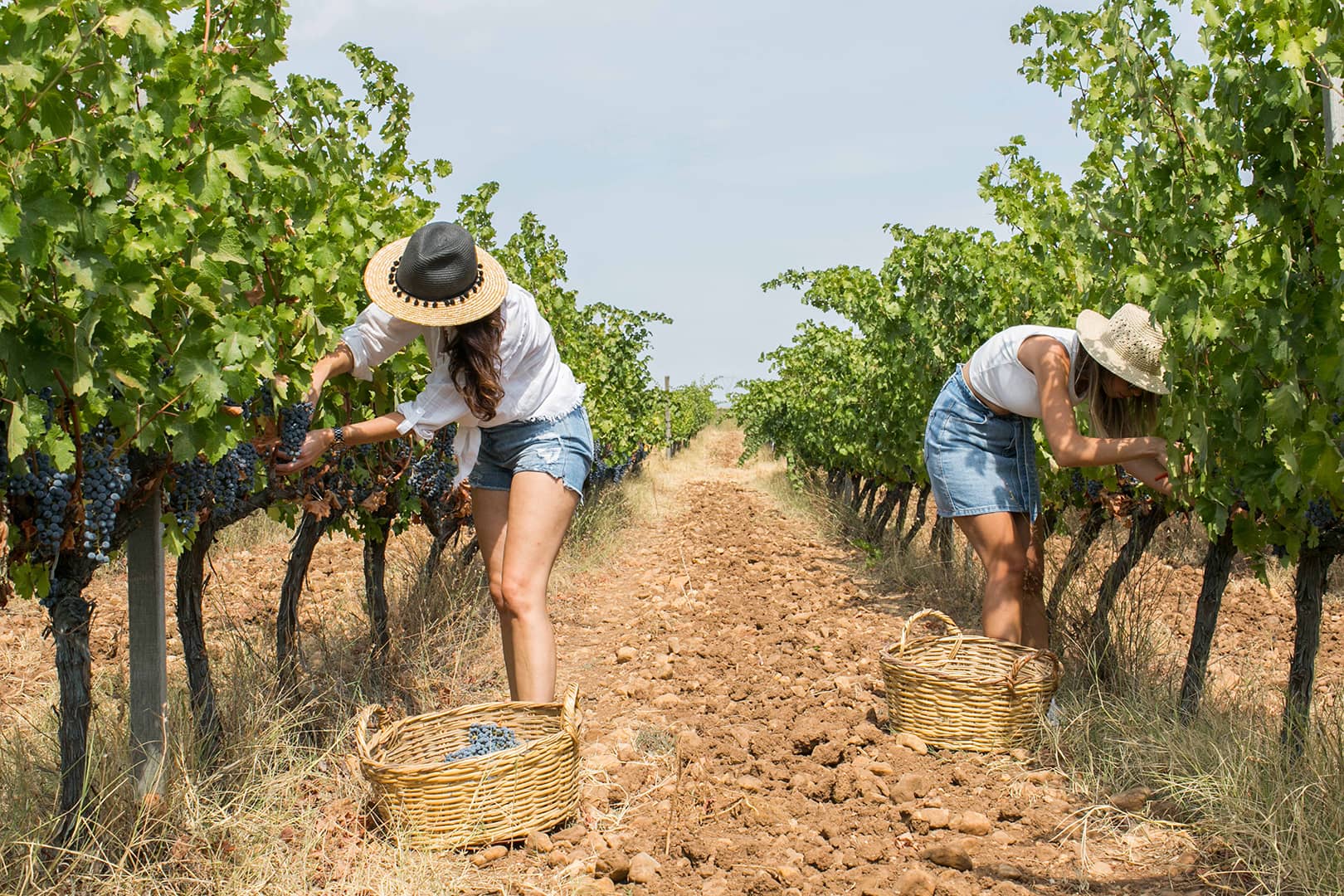
b. Aegean (Denizli, İzmir, Manisa)
- Location: Western Turkey, along the Aegean Sea.
- Climate: Mediterranean climate with mild, wet winters and hot, dry summers.
- Key Wineries:
- Sevilen: Offers a diverse portfolio of wines, including award-winning whites and reds.
- Pamukkale Şarapçılık: Located near the ancient city of Hierapolis, known for its scenic vineyards and quality wines.
- Diren Şarapçılık: Specializes in organic wines with a focus on sustainability.
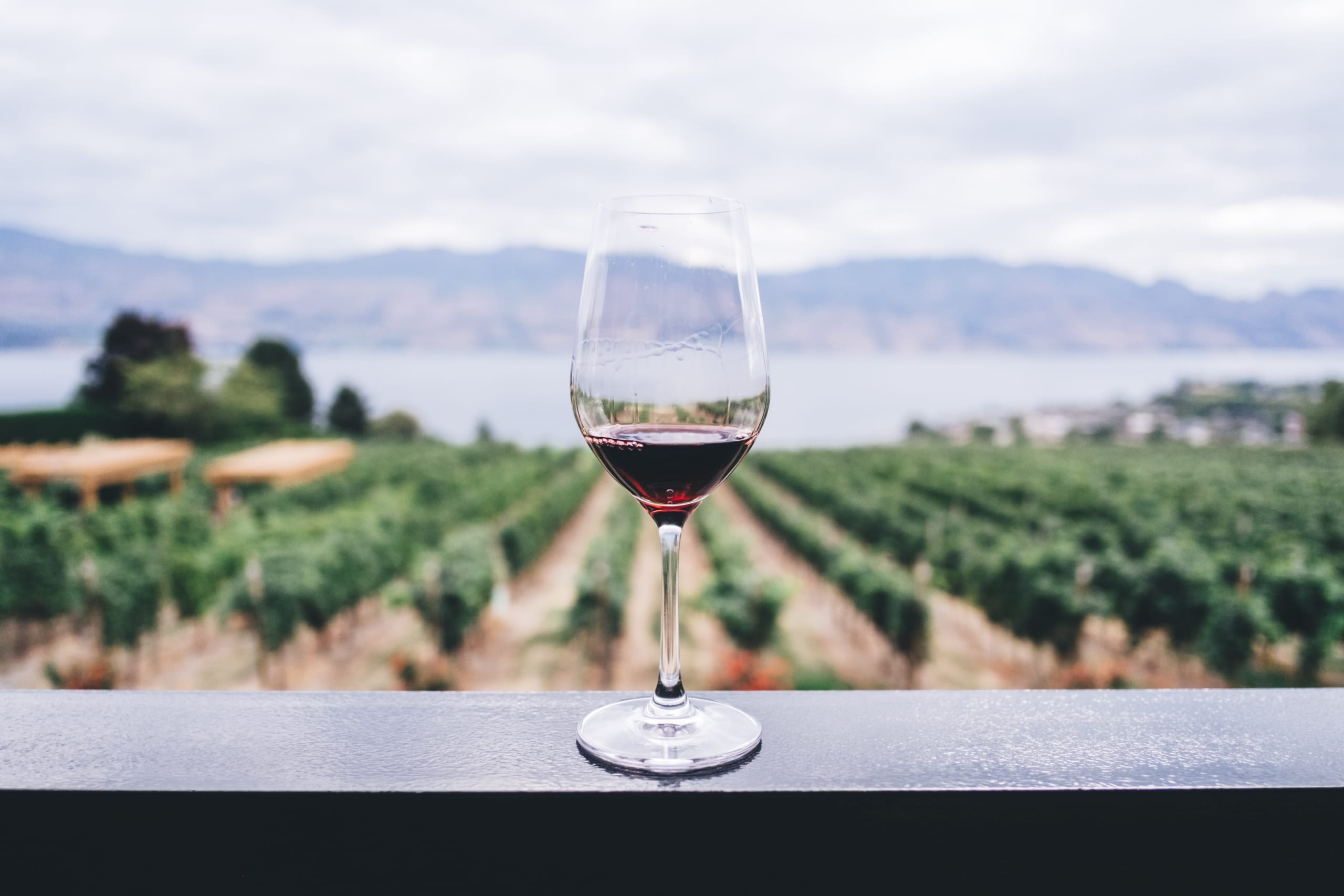
c. Central Anatolia (Ankara, Cappadocia)
- Location: Central part of Turkey, encompassing regions like Ankara and the unique landscapes of Cappadocia.
- Climate: Continental climate with significant temperature variations, suitable for both red and white grape varieties.
- Key Wineries:
- Turasan: Based in Cappadocia, renowned for its unique terroir-influenced wines.
- Cappadocia Wines: Offers wines that reflect the volcanic soil and high altitude of the region.
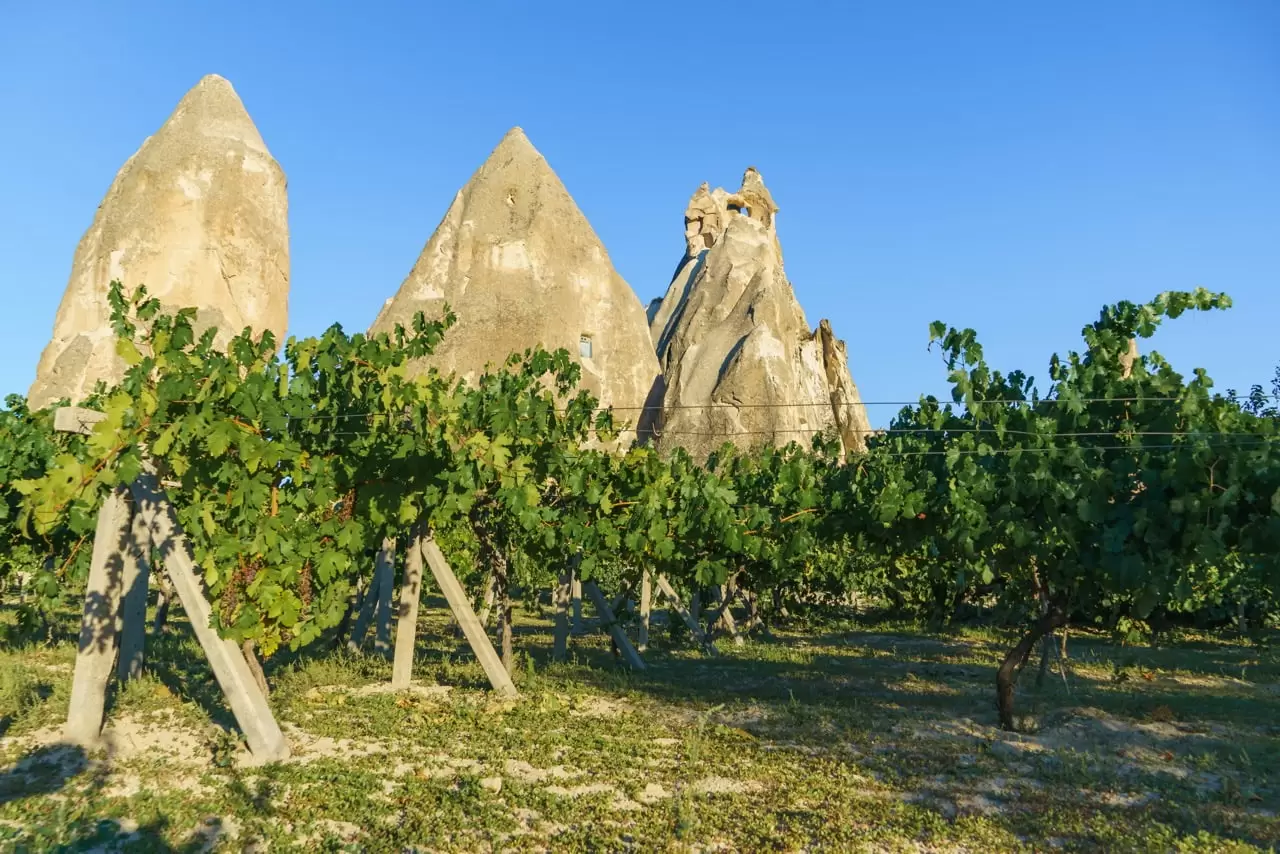
d. Marmara (Bursa)
- Location: Northwestern Turkey, surrounding the Sea of Marmara.
- Climate: Similar to Thrace, with hot summers and cold winters.
- Key Wineries:
- Vinkara: One of the leading wineries in the Marmara region, known for its diverse wine selection.
- Korcan: Offers a variety of red and white wines, emphasizing quality and tradition.
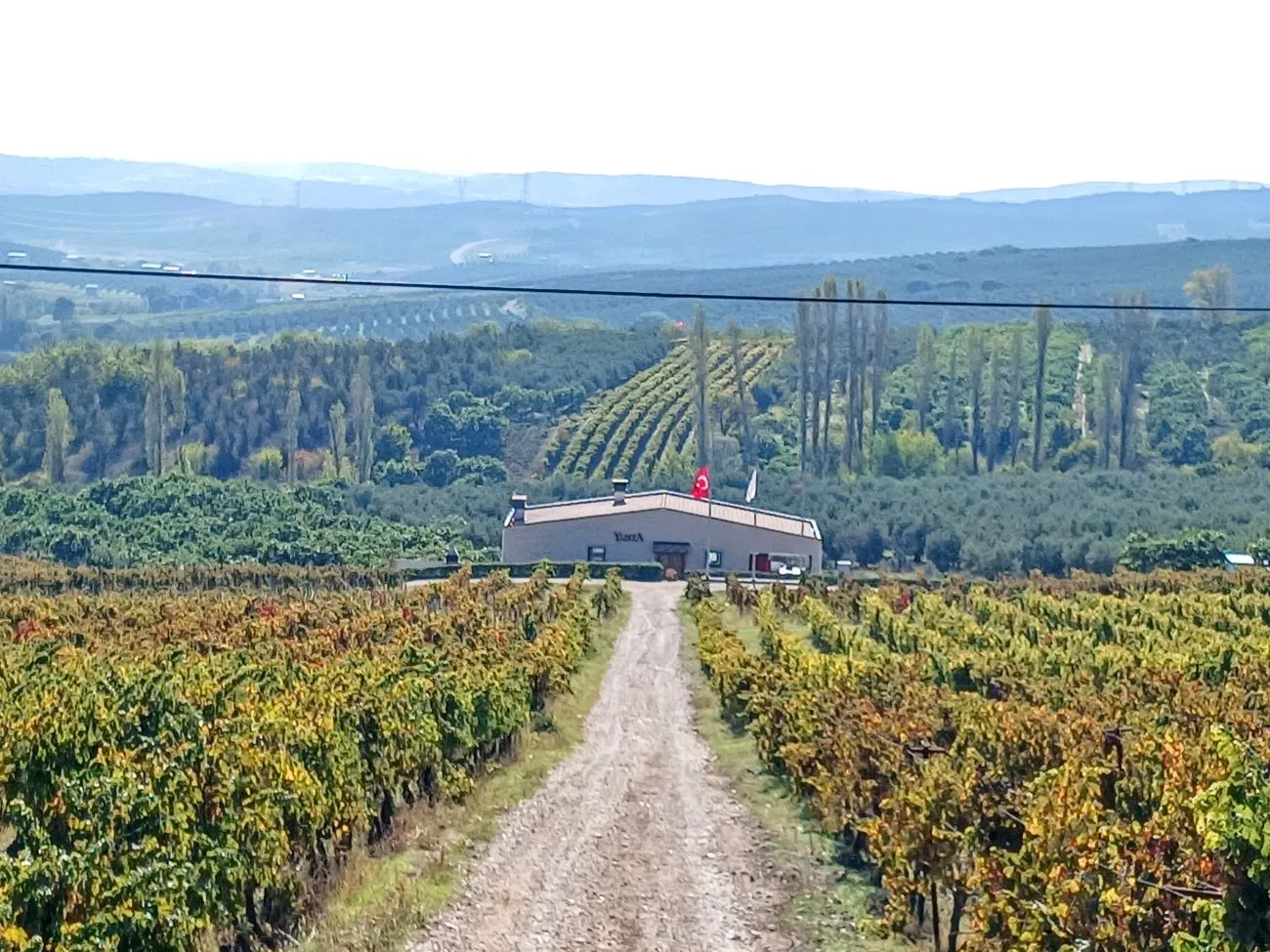
e. Mediterranean (Antalya, Mersin)
- Location: Southwestern Turkey, along the Mediterranean coast.
- Climate: Mediterranean climate, perfect for growing both red and white grape varieties.
- Key Wineries:
- Rakı Evi: Combines traditional winemaking with modern techniques.
- Bahadır: Known for producing high-quality wines with a focus on local grape varieties.
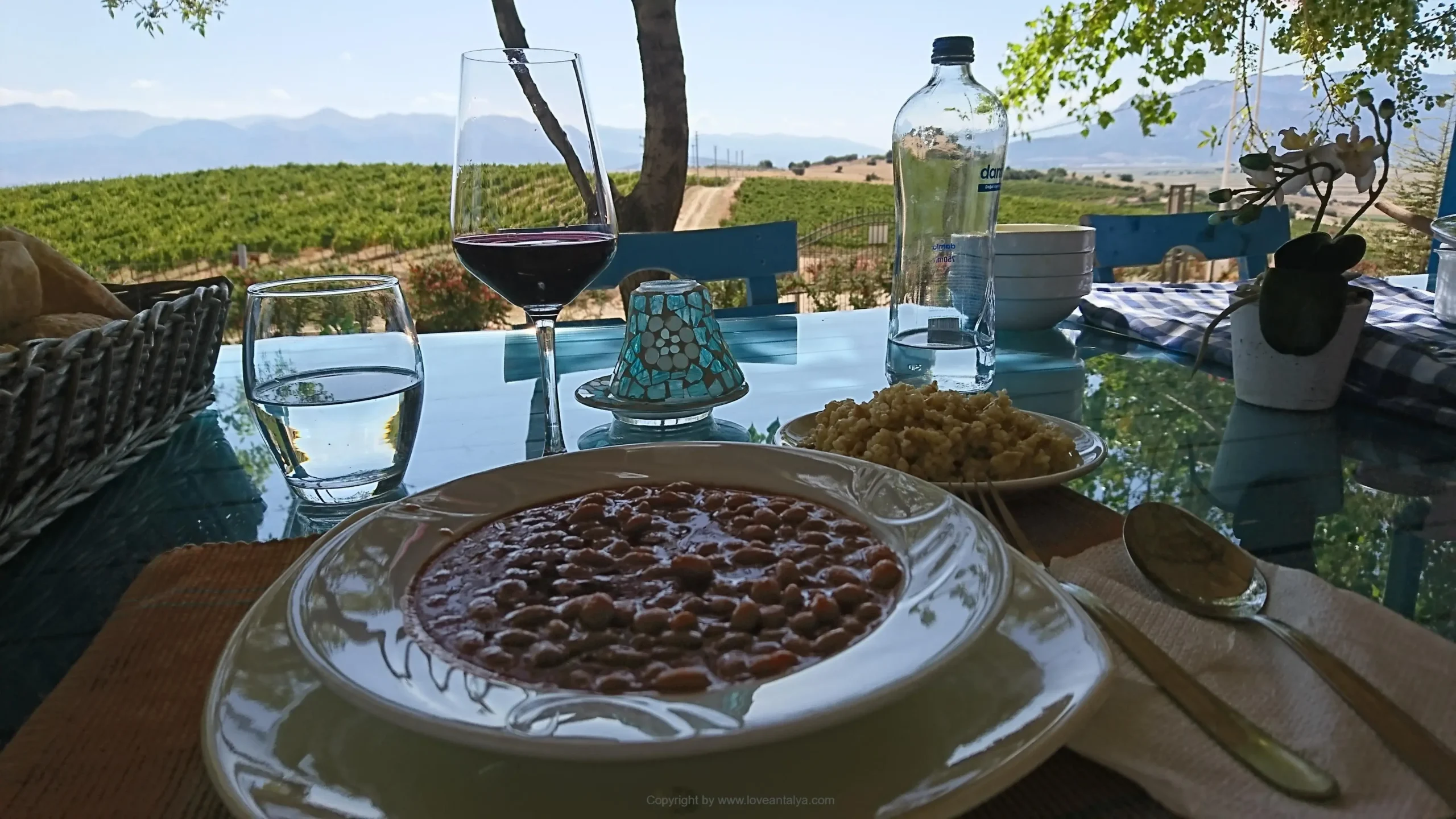
3. Prominent Vineyards and Wineries
a. Kavaklıdere Winery
- Location: Tekirdağ, Thrace.
- Highlights:
- Extensive Portfolio: Offers a wide range of wines, from entry-level to premium labels.
- Wine Museum: Features exhibits on the history of Turkish winemaking.
- Wine Tours: Guided tours of the vineyards and production facilities, including tastings.
- Must-Try Wines:
- Kavaklıdere Yakut: A flagship red wine with rich flavors.
- Kavaklıdere Fine Selection Sarafin: An elegant white wine perfect for pairing with seafood.
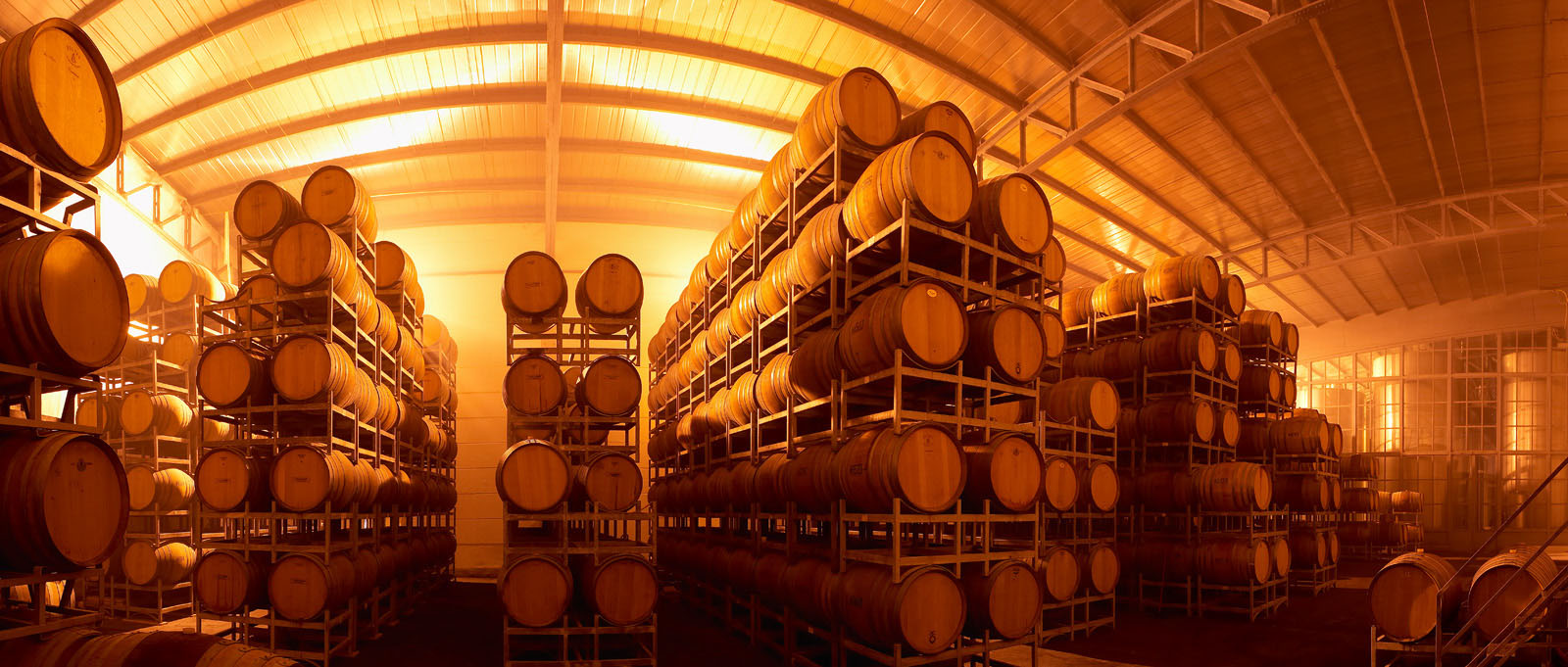
b. Doluca Winery
- Location: İzmir, Aegean.
- Highlights:
- Sustainability: Emphasizes organic farming and eco-friendly production methods.
- Tasting Rooms: Modern facilities offering comprehensive wine tastings.
- Events: Hosts regular wine events, including pairing dinners and live music.
- Must-Try Wines:
- Doluca Aladağ: A robust red wine with intense berry flavors.
- Doluca Narince: A crisp and aromatic white wine ideal for warm climates.
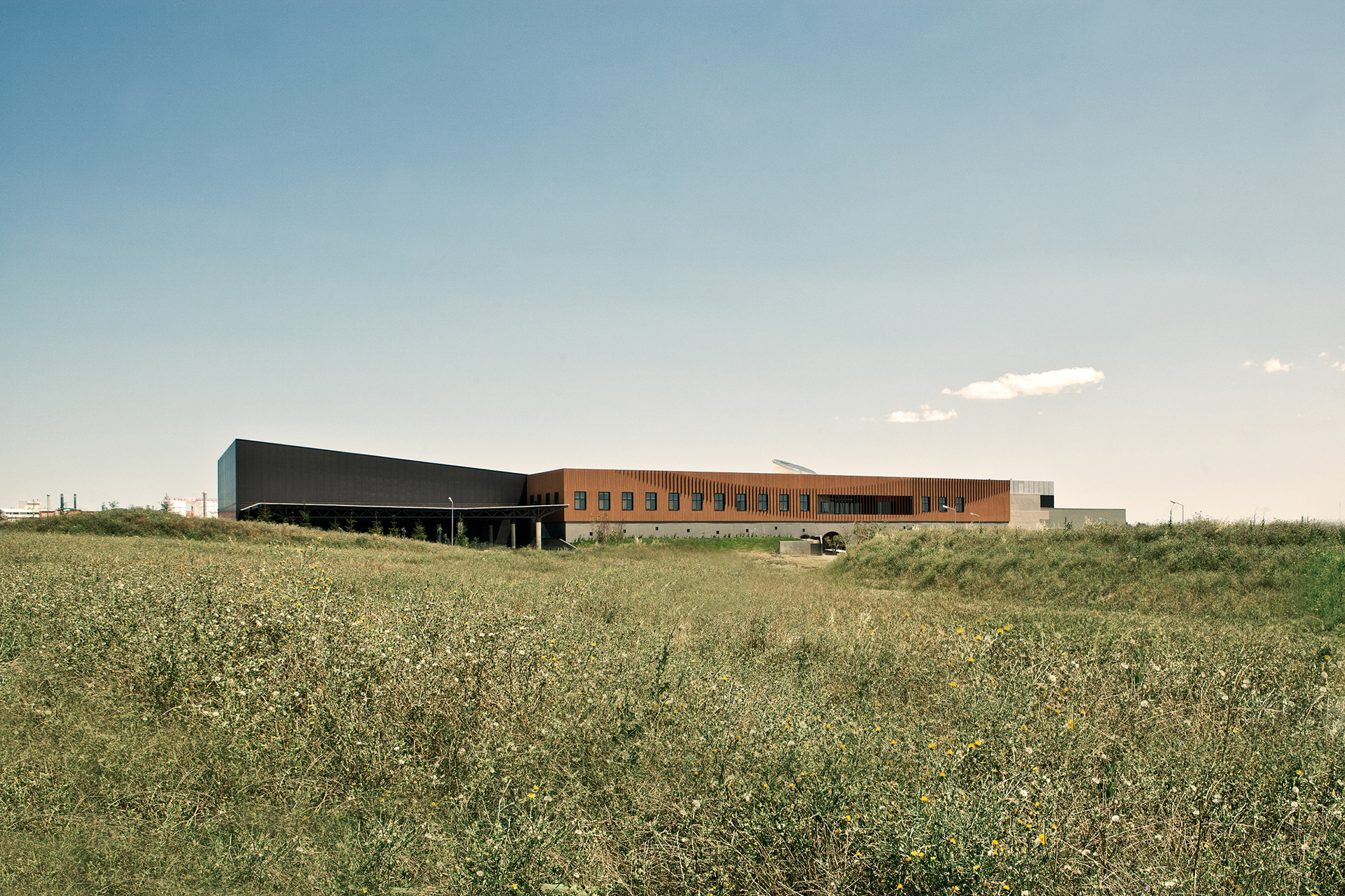
c. Turasan Winery
- Location: Cappadocia, Central Anatolia.
- Highlights:
- Unique Terroir: Wines influenced by the volcanic soils and high altitudes of Cappadocia.
- Innovative Techniques: Combines traditional winemaking with modern innovations.
- Boutique Experience: Smaller, intimate settings for personalized tastings.
- Must-Try Wines:
- Turasan Emir: A local white grape variety, producing fresh and floral wines.
- Eurasian Red Cappadocia: A blend showcasing the region’s red grape varieties.
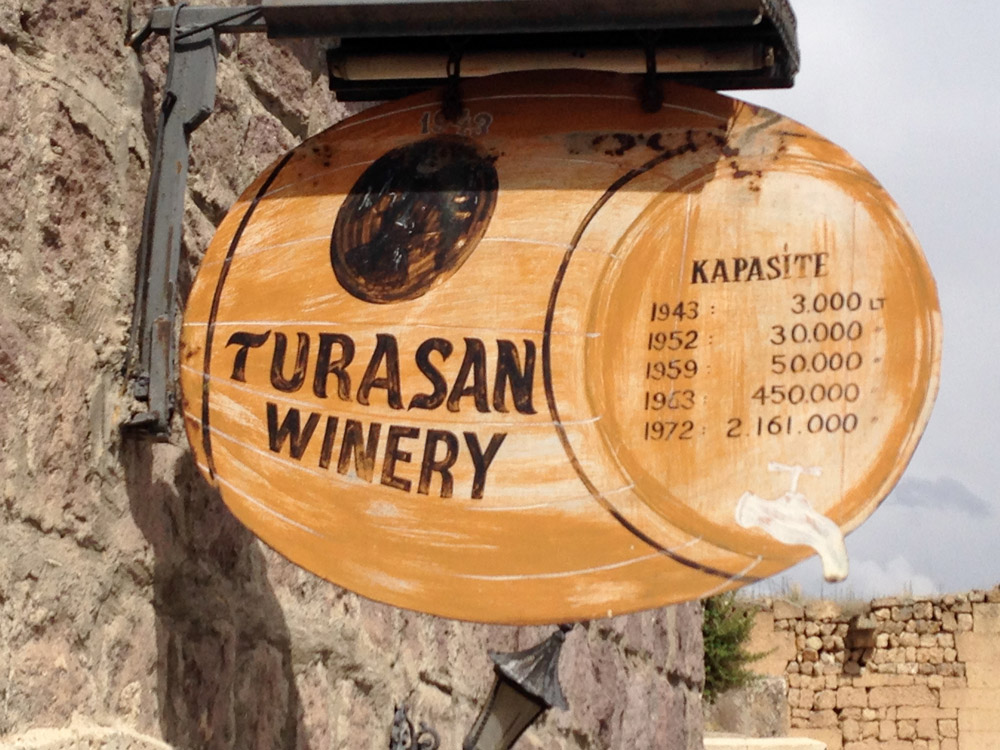
d. Sevilen Winery
- Location: Denizli, Aegean.
- Highlights:
- Diverse Offerings: Extensive selection of both red and white wines.
- Scenic Vineyards: Beautiful vineyard landscapes perfect for strolls.
- Winery Restaurant: Offers gourmet meals paired with Sevilen wines.
- Must-Try Wines:
- Sevilen Cins Merlot: A smooth and balanced red wine.
- Sevilen Sauvignon Blanc: A vibrant and zesty white wine.
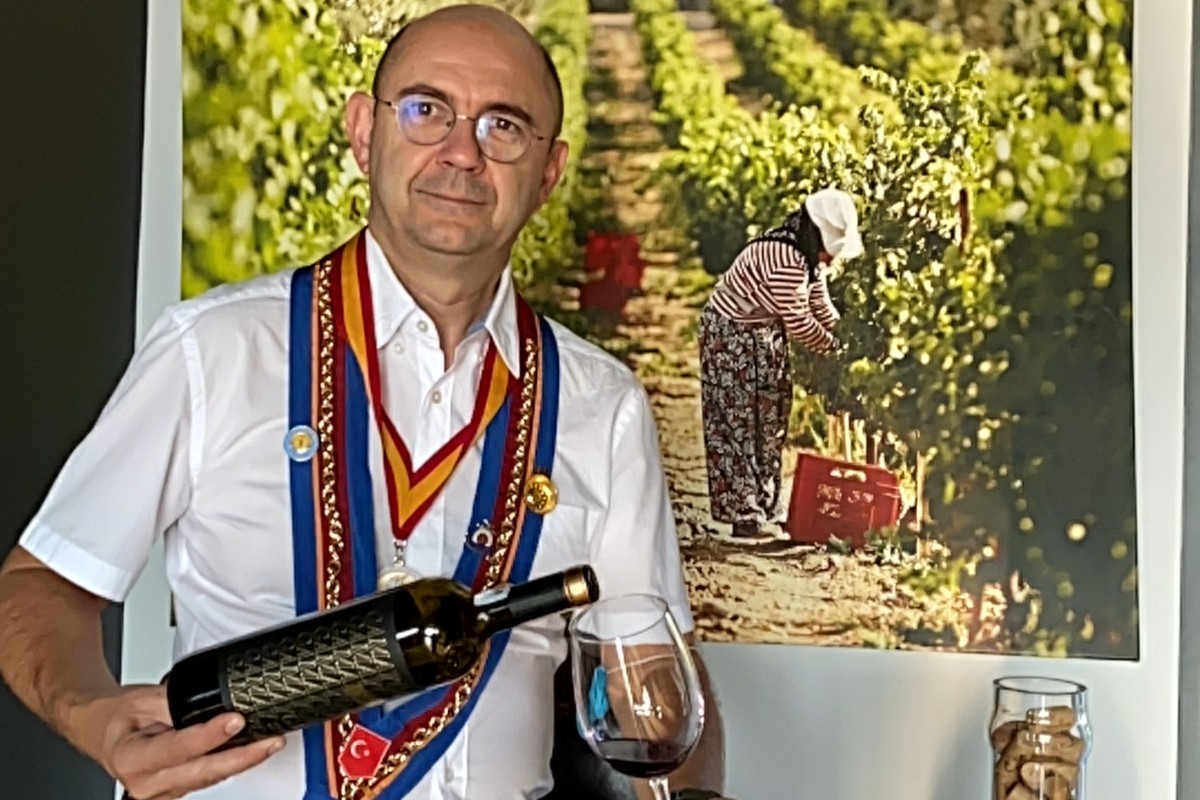
4. Wine Tours in Turkey
a. Guided Wine Tours
- Description: Organized tours led by knowledgeable guides who provide insights into Turkey’s wine regions, grape varieties, and winemaking processes.
- Popular Operators:
- Turkish Wine Tours: Offers bespoke itineraries across multiple regions.
- Edge Wine Tours: Specializes in Aegean region tours, including İzmir and Denizli.
- What’s Included:
- Transportation between wineries.
- Guided tastings and tours of production facilities.
- Meals or picnic arrangements at scenic vineyard locations.
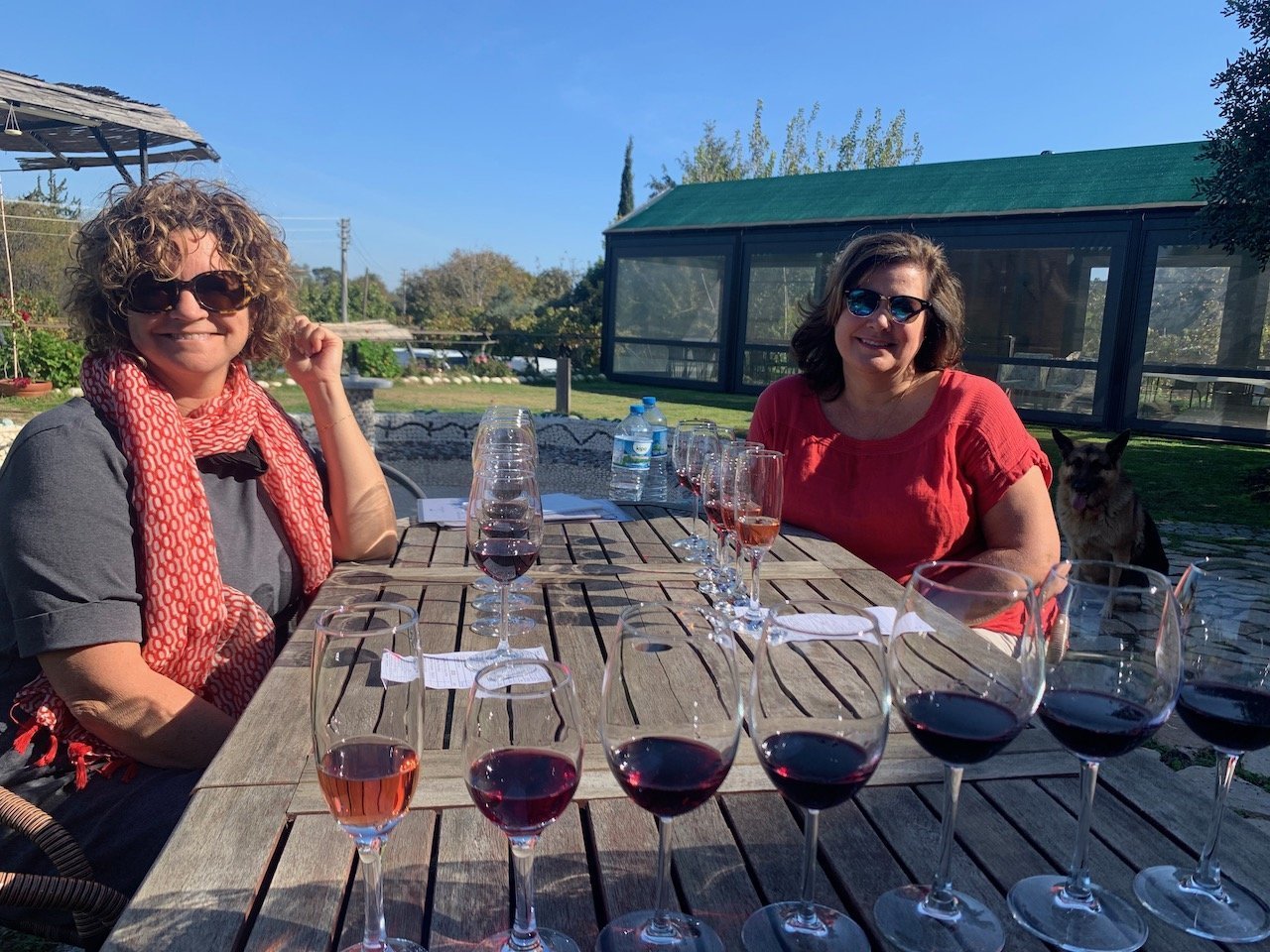
b. Self-Guided Wine Tours
- Description: Flexible itineraries allow you to explore at your own pace. Ideal for travelers who prefer independence.
- How to Plan:
- Research: Identify key wineries and their locations within your chosen region.
- Transportation: Rent a car or scooter for easy access to remote vineyards.
- Booking Tastings: Contact wineries in advance to schedule tastings or tours.
- Benefits:
- Greater flexibility in scheduling.
- Ability to linger longer at favorite spots.
- Opportunity to discover off-the-beaten-path vineyards.
c. Wine and Food Pairing Tours
- Description: Tours that combine wine tastings with culinary experiences, highlighting the synergy between Turkish wines and local cuisine.
- Highlights:
- Pairing Dinners: Enjoy multi-course meals where each dish is expertly paired with a different wine.
- Cooking Classes: Learn to prepare traditional Turkish dishes that complement local wines.
- Popular Destinations: Aegean and Mediterranean regions, known for their vibrant food scenes.
5. Wine Festivals and Events
a. Istanbul Wine Festival
- When: Typically held in September.
- Highlights:
- Wine Tastings: Sample a wide variety of Turkish and international wines.
- Workshops and Seminars: Learn about winemaking, tasting techniques, and wine pairing.
- Live Music and Entertainment: Enjoy performances by local artists while sipping your favorite wines.
- Location: Various venues across Istanbul, often including historic sites and modern event spaces.
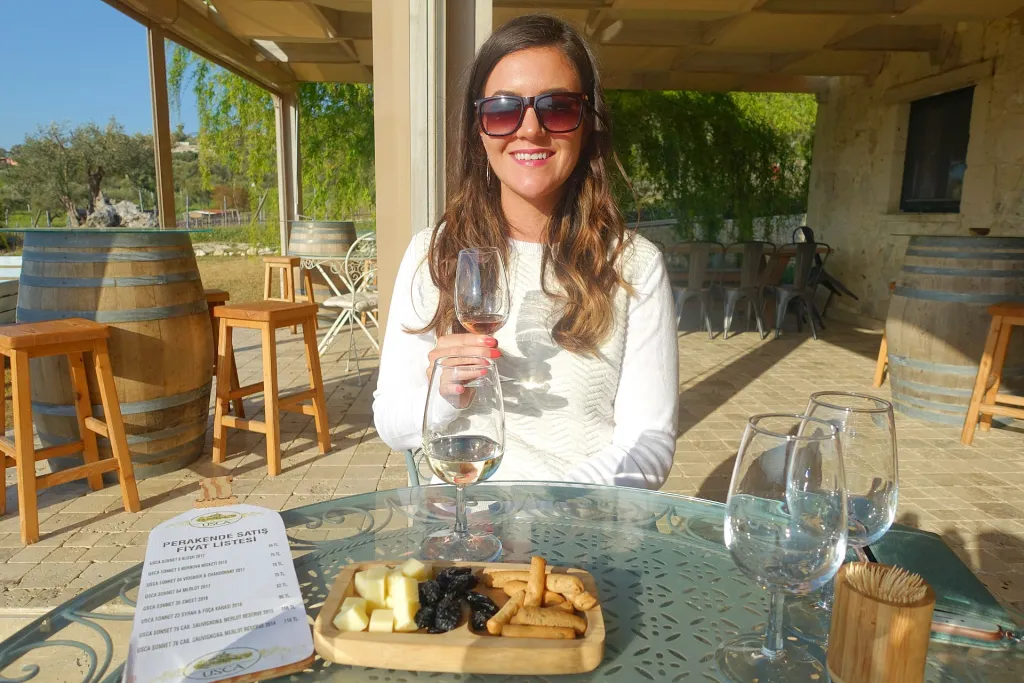
b. Aspendos International Wine and Tourism Festival
- When: Annually in August.
- Highlights:
- Wine Competitions: Celebrate the best wines from different regions.
- Cultural Performances: Traditional music and dance performances.
- Gastronomic Experiences: Food stalls offering regional delicacies paired with local wines.
- Location: Near the ancient Aspendos Theatre, providing a stunning backdrop for the festivities.
c. İzmir Wine Festival
- When: Usually in October.
- Highlights:
- Vineyard Tours: Guided tours of local wineries with exclusive tastings.
- Wine Workshops: Educational sessions on grape cultivation and winemaking.
- Wine Market: Opportunities to purchase wines directly from producers at discounted prices.
- Location: Various locations within İzmir, including vineyards and cultural centers.
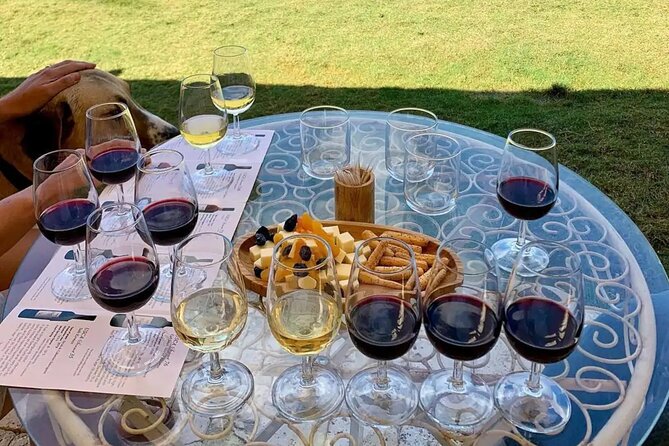
6. Practical Tips for Wine Tourism in Turkey
a. Planning Your Trip
- Best Time to Visit: Spring (April-June) and autumn (September-November) for pleasant weather and optimal vineyard conditions.
- Duration: Allocate at least 3-5 days to explore multiple regions and wineries.
- Booking in Advance: Reserve wine tours, tastings, and accommodations ahead of time, especially during peak seasons and festivals.
b. Transportation
- Renting a Car: Offers the most flexibility for exploring wine regions, especially those that are remote or spread out.
- Public Transport: Limited in some wine regions; not ideal for comprehensive wine tours.
- Private Drivers or Tours: Consider hiring a driver or joining a private tour for convenience and safety, especially if you plan on indulging in tastings.
c. Accommodation
- Stay at Wineries: Some wineries offer on-site accommodations, providing an immersive wine-country experience.
- Local Guesthouses and Boutique Hotels: Located near major wine regions, offering personalized service and local charm.
- Eco-Friendly Options: Choose accommodations that prioritize sustainability to align with eco-tourism principles.
d. Responsible Drinking
- Moderation: Enjoy tastings responsibly to fully appreciate the flavors and avoid overindulgence.
- Hydration and Food: Stay hydrated and pair wines with local cuisine to enhance your tasting experience.
- Respect Local Laws: Familiarize yourself with Turkey’s alcohol consumption laws and cultural norms, especially when visiting religious sites.
e. Language and Communication
- Basic Turkish Phrases: Learning a few wine-related terms in Turkish can enhance your interactions with winemakers and staff.
- Guides and Translators: Consider hiring a bilingual guide if you’re not fluent in Turkish, especially for detailed tours and tastings.
7. Notable Wineries to Visit
a. Şarap Evi Winery
- Location: Tekirdağ, Thrace.
- Highlights:
- Traditional Winemaking: Combines ancient techniques with modern technology.
- Variety of Wines: Offers a broad selection of red, white, and rosé wines.
- Scenic Tours: Guided tours of the vineyards and production facilities with tastings.
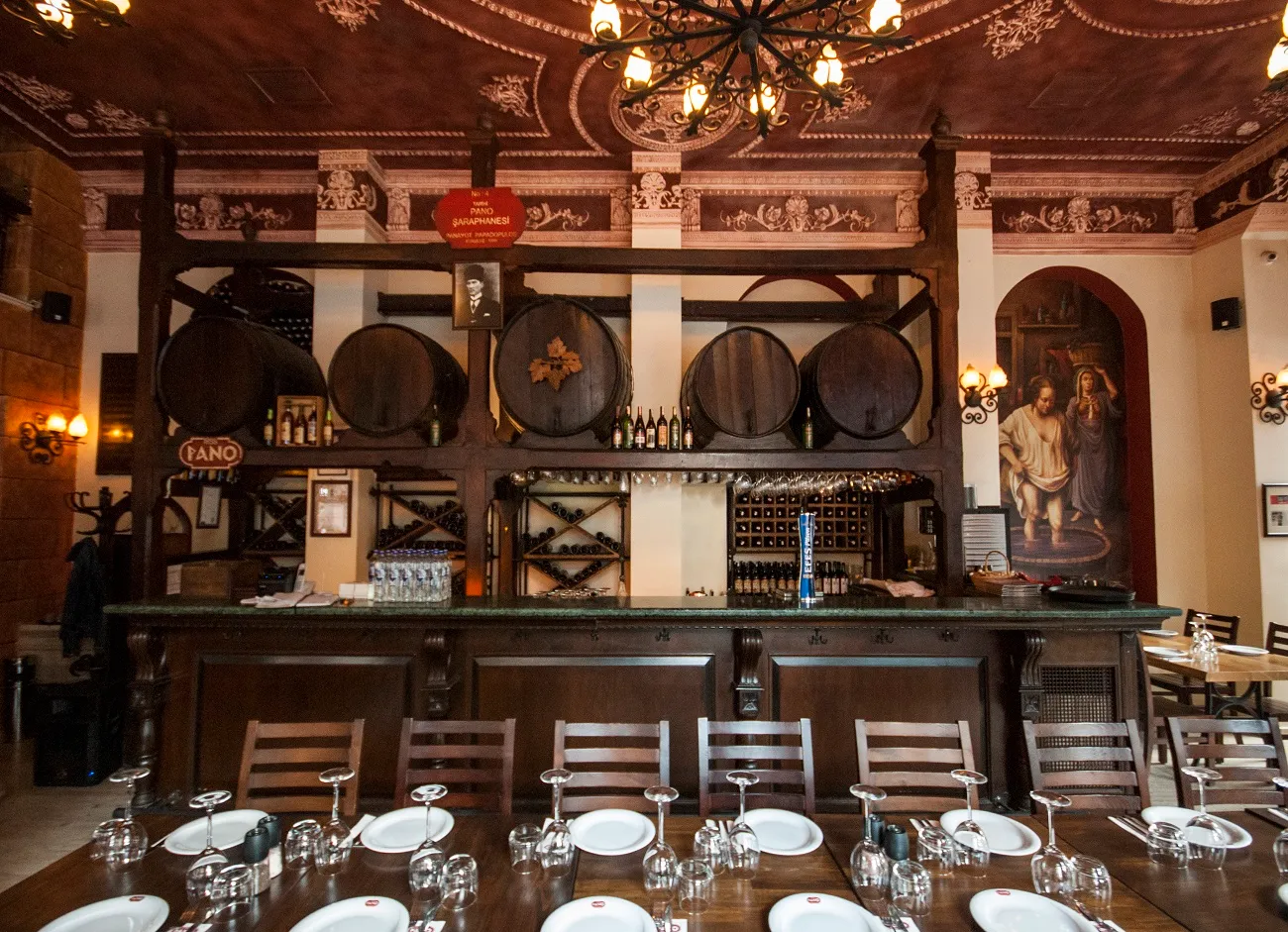
b. Kocabağ Winery
- Location: Cappadocia, Central Anatolia.
- Highlights:
- Unique Terroir: Wines influenced by the volcanic soil and high-altitude climate.
- Organic Practices: Focuses on sustainable and organic viticulture.
- Boutique Experience: Small-scale production with personalized tastings and tours.
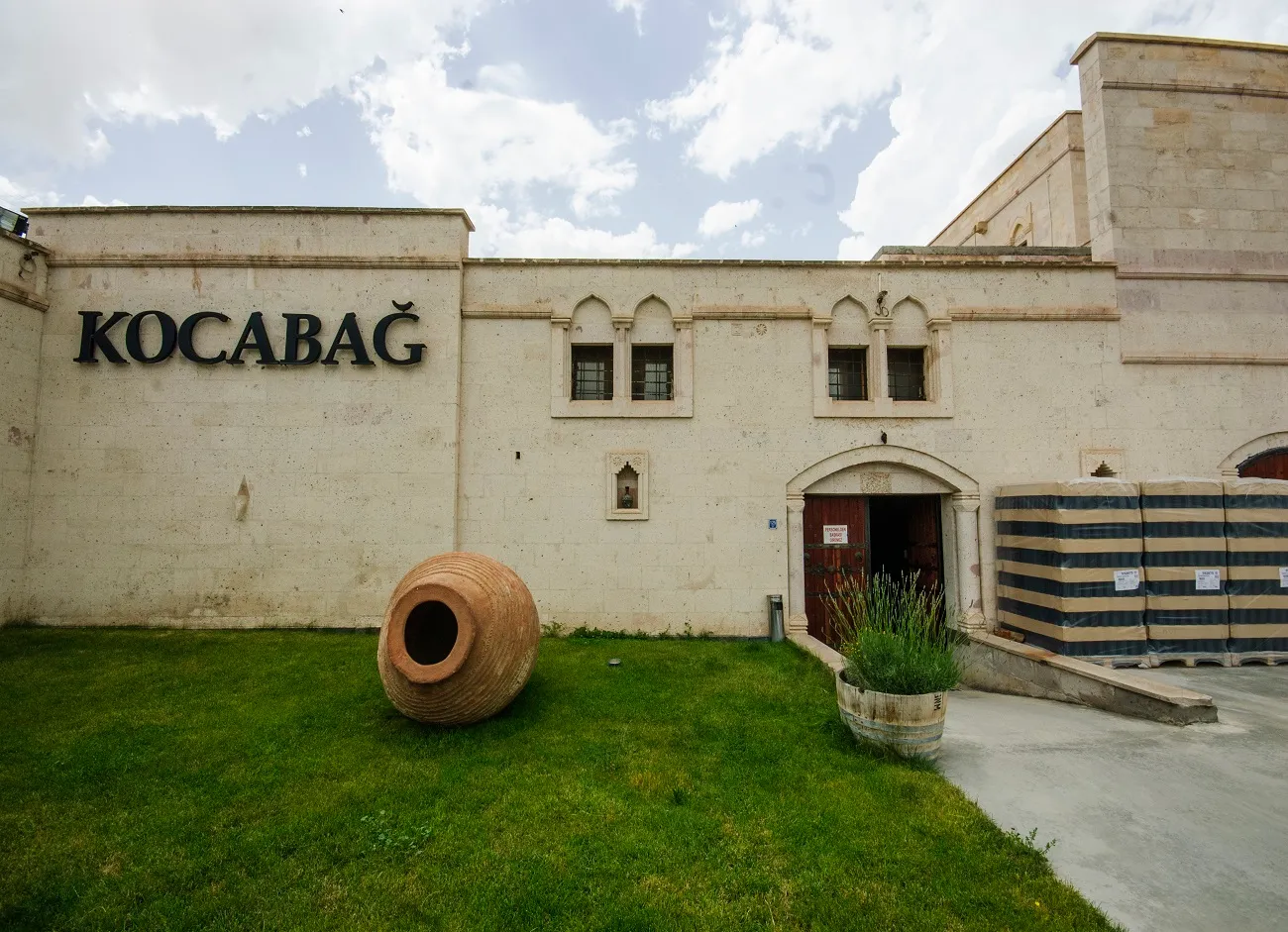
c. Dalaman Winery
- Location: Denizli, Aegean.
- Highlights:
- Award-Winning Wines: Recognized both nationally and internationally for quality.
- Eco-Friendly Facilities: Emphasizes sustainability in production and operations.
- Visitor Center: Comprehensive tours that include historical insights and wine education.
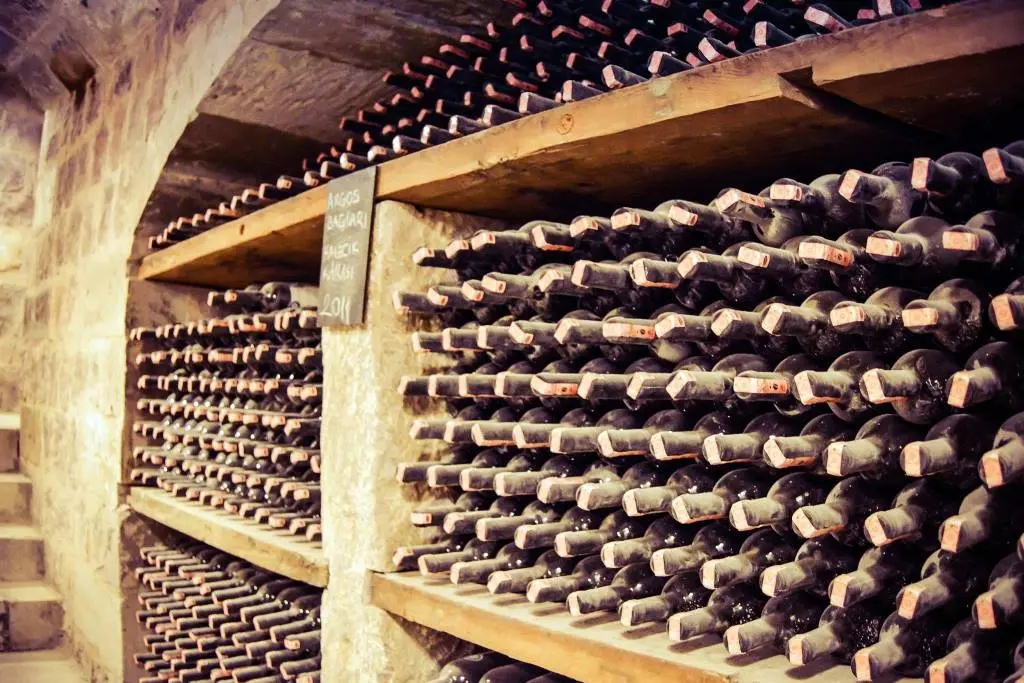
8. Exploring Wine Culture in Turkey
a. Traditional Wine Bars (Meyhane)
- Description: Meyhanes are traditional Turkish taverns where you can enjoy wine alongside mezes (small dishes) and live music.
- Experience:
- Social Atmosphere: Engage with locals and experience authentic Turkish hospitality.
- Culinary Pairings: Savor a variety of dishes specifically designed to complement different wines.
- Popular Locations: Istanbul’s Beyoğlu district, İzmir’s Alsancak area, and Bodrum’s marina.
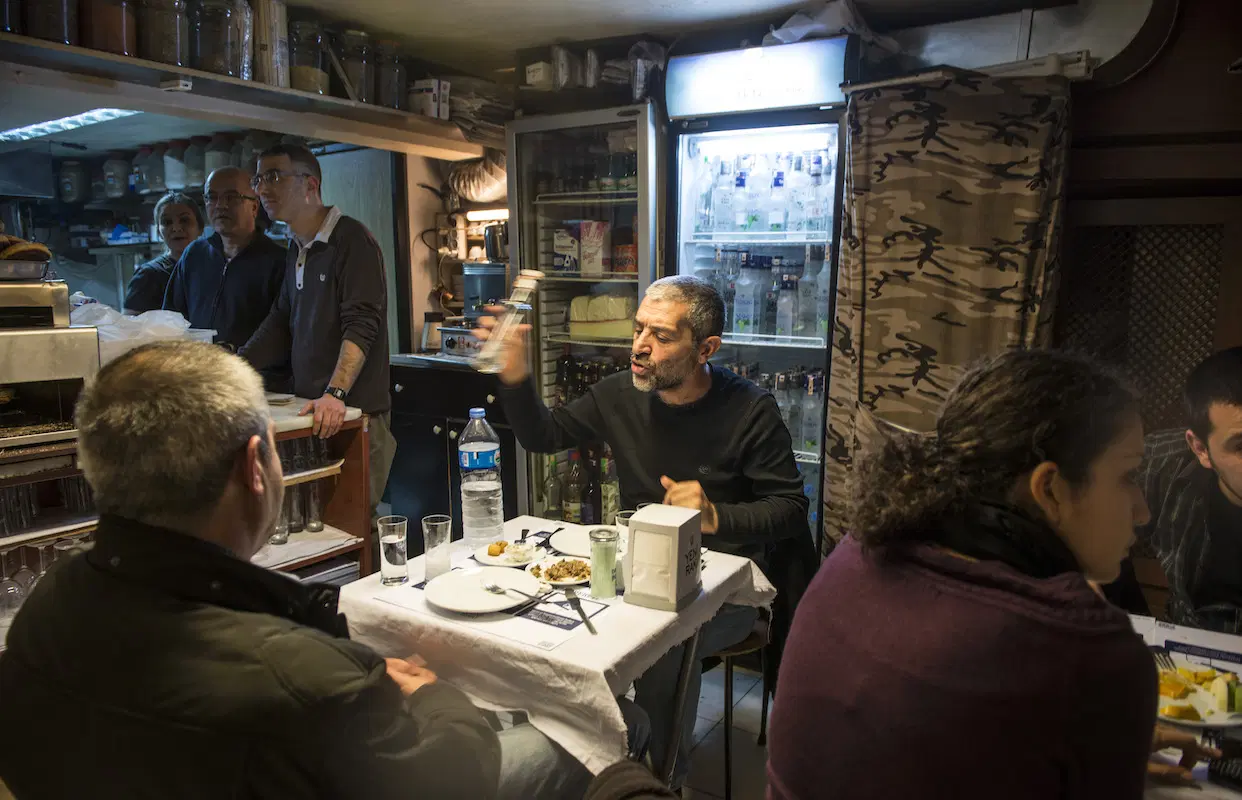
b. Wine Museums and Exhibits
- Example: Kavaklıdere Winery Museum in Tekirdağ offers exhibits on the history of Turkish winemaking, showcasing ancient tools and artifacts.
- Experience:
- Educational: Learn about the evolution of winemaking in Turkey.
- Interactive: Engage with displays that illustrate the viticulture process from grape to glass.
c. Wine and Cultural Festivals
- Description: Festivals that celebrate both wine and Turkey’s cultural heritage through music, dance, and traditional performances.
- Examples:
- Aspendos International Wine and Tourism Festival: Combines wine tastings with performances in a historic setting.
- İzmir Wine Festival: Features local wines alongside cultural events and culinary showcases.
9. Wine Tasting Etiquette in Turkey
a. Tasting Protocol
- Small Sips: Taste wines in small sips to appreciate the flavors and aromas fully.
- Swirl and Smell: Swirl the glass gently to release aromas and take a moment to inhale the bouquet before tasting.
- Ask Questions: Engage with winemakers and staff to learn more about the wines and their production processes.
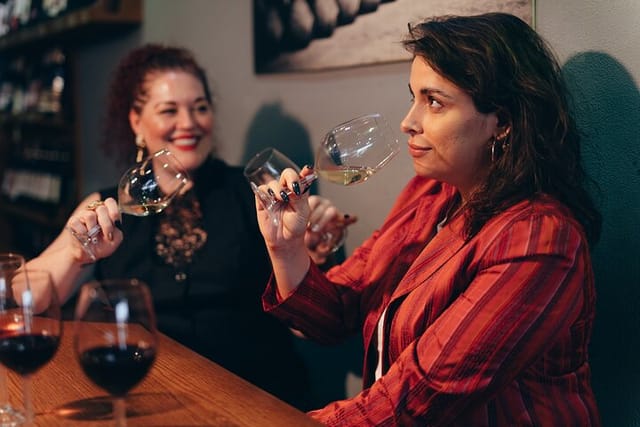
b. Purchasing Wine
- Buying on Site: Many wineries offer discounts for purchasing wines directly on-site.
- Gift Shops: Take advantage of winery gift shops to buy unique bottles and souvenirs.
- Proper Storage: Ensure you have proper packaging if you plan to transport wines back home.
c. Respecting Local Customs
- Modesty in Presentation: Handle wine glasses and bottles with respect, especially in formal tasting settings.
- Cultural Sensitivity: Be aware that some regions may have conservative attitudes towards alcohol, so dress and behave appropriately.
10. Conclusion
Turkey’s wine regions offer a captivating blend of ancient traditions and modern innovations, producing wines that reflect the country’s diverse climates and rich heritage. From the bustling vineyards of Thrace to the scenic hills of Cappadocia and the coastal charm of the Aegean, each region provides a unique wine-tasting experience. By embracing sustainable travel practices and exploring Turkey’s premier wineries and vineyards, you not only indulge in exceptional wines but also contribute to the preservation of Turkey’s natural and cultural landscapes.
Whether you’re starting a guided wine tour, savoring local flavors at a traditional meyhane, or exploring boutique wineries at your own pace, Turkey’s wine scene promises unforgettable moments and delightful discoveries. Raise a glass to your Turkish wine adventure and enjoy the rich flavors and stories that each bottle holds.
Cheers, and happy wine tasting in Turkey!
